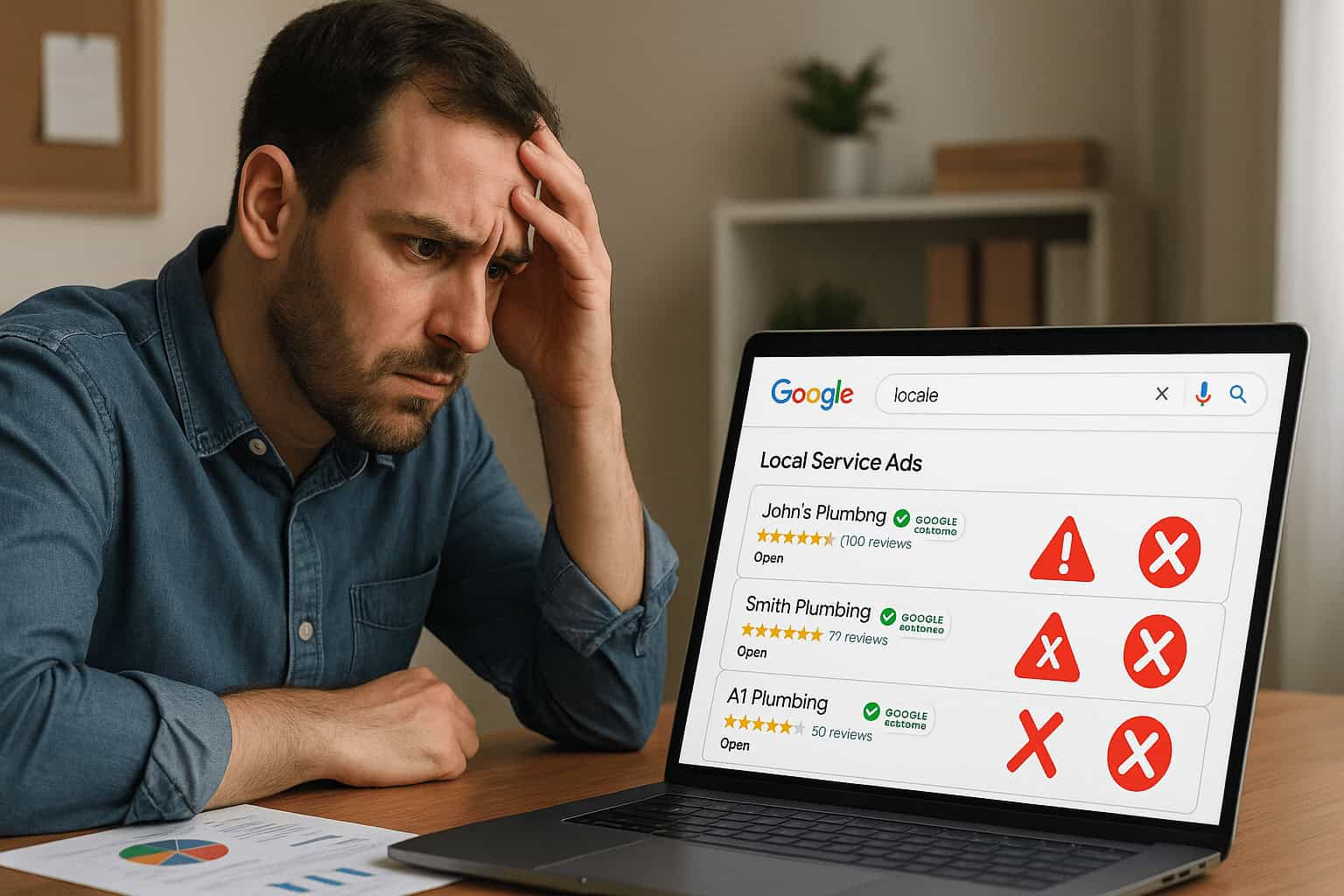In today’s competitive landscape, small businesses face the challenge of standing out and attracting potential customers.
Unlocking growth often hinges on the effectiveness of your lead generation strategies. How can you ensure a steady stream of qualified leads without breaking the bank? The answer lies in implementing innovative and proven tactics tailored to your unique needs.
In this article, we’ll explore six powerful lead generation strategies that every small business should embrace.
From leveraging social media to optimizing your website for conversions, these actionable insights will empower you to captivate your target audience and boost your bottom line.
Whether you’re just starting or looking to refine your existing approach, this guide will equip you with the tools you need to thrive.
Get ready to unlock your business’s full potential and embark on your journey toward sustainable growth!
Understanding Lead Generation for Small Businesses
Lead generation is the process of attracting and converting strangers and prospects into individuals who have expressed interest in your company’s product or service.
For small businesses, lead generation is a critical component of growth and sustainability. It involves a mix of marketing strategies designed to build awareness, capture interest, and drive inquiries from potential customers.
The goal of lead generation is to create a pipeline of potential customers who are genuinely interested in what you have to offer.
You can then nurture this pipeline through various marketing efforts until they are ready to make a purchase.
Small businesses often face the challenge of limited resources, making it essential to implement cost-effective yet powerful lead generation strategies that deliver results.
Understanding the fundamentals of lead generation is the first step toward unlocking growth for your small business. By focusing on targeted, high-impact strategies, you can ensure that your efforts are not only efficient but also effective in capturing and converting leads.
The following sections will explore six powerful strategies that every small business should consider to enhance its lead generation efforts.
The Importance of a Target Audience
Before diving into specific lead generation strategies, it’s crucial to understand the importance of identifying and targeting the right audience.
Your target audience is a specific group of consumers most likely to be interested in your product or service. By focusing on this group, you can tailor your marketing efforts to meet their needs and preferences, resulting in higher engagement and conversion rates.
Defining your target audience involves researching and analyzing demographic data, purchasing behaviors, and psychographic characteristics.
This information allows you to create detailed buyer personas, which are semi-fictional representations of your ideal customers. These personas inform your marketing strategies and enable you to create content and campaigns that effectively resonate with your audience.
Knowing your target audience helps you allocate your resources more efficiently. Instead of casting a wide net and hoping for the best, you can focus on attracting high-quality leads who are more likely to convert into paying customers.
This targeted approach not only improves your lead generation efforts but also enhances your overall marketing ROI.
6 Lead Generation Strategies For Small Business Success
Strategy 1: Leveraging Social Media for Lead Generation
Social media platforms offer a treasure trove of opportunities for lead generation.
With billions of active users worldwide, platforms like Facebook, Instagram, LinkedIn, and Twitter allow you to reach a vast audience and engage with potential customers in real-time.
The key to leveraging social media for lead generation lies in understanding the unique dynamics of each platform and tailoring your approach accordingly.
One effective strategy is to create and share engaging content that addresses the pain points and interests of your target audience. This content can take various forms, including blog posts, videos, infographics, and live streams. By providing valuable information and insights, you can establish your business as a trusted authority in your industry and foster trust with your audience.
Another powerful tactic is to use social media advertising to promote your products or services to a highly targeted audience.
Social media ads enable you to define your target audience based on various criteria, including age, location, interests, and behaviors. This precision targeting ensures that your ads are seen by people who are most likely to be interested in what you have to offer, resulting in higher conversion rates.
Strategy 2: Creating Compelling Content Marketing
Content marketing is a cornerstone of effective lead generation. By creating and distributing valuable, relevant, and consistent content, you can attract and engage a clearly defined audience, driving profitable customer actions. The key to successful content marketing lies in understanding your audience’s needs and preferences and delivering content that meets those needs.
Start by developing a content strategy that outlines your goals, target audience, and the types of content you will create. This strategy should include a mix of content formats, such as blog posts, videos, podcasts, eBooks, and webinars, to cater to different preferences and consumption habits. Additionally, ensure that your content is optimized for search engines to increase its visibility and reach.
To maximize the impact of your content marketing efforts, focus on creating high-quality, informative, and engaging content that addresses the pain points and interests of your audience. This approach not only helps you attract potential leads but also positions your business as a trusted source of information and expertise. Consistently publishing valuable content can nurture leads over time and guide them through the buyer’s journey.
Strategy 3: Utilizing Email Marketing Effectively
Email marketing remains one of the most effective lead generation strategies for small businesses. It allows you to communicate directly with your audience, build relationships, and drive conversions.
The key to successful email marketing lies in creating personalized, relevant, and timely messages that resonate with your subscribers.
Start by building a high-quality email list of potential leads who have opted in to receive communications from your business.
This list can be built through various methods, such as offering valuable content or incentives in exchange for email addresses, hosting webinars, and using lead magnets like free eBooks or guides.
Once you have a robust email list, segment your subscribers based on their interests, behaviors, and demographics to deliver targeted and relevant content.
Crafting compelling email campaigns involves creating engaging subject lines, personalized content, and clear calls to action.
Utilize a combination of promotional, educational, and transactional emails to maintain audience engagement and nurture leads throughout the sales funnel.
Additionally, track and analyze key metrics, such as open rates, click-through rates, and conversion rates, to optimize your email marketing efforts and improve overall performance.
Strategy 4: Networking and Partnerships
Networking and forming strategic partnerships are powerful lead generation strategies that can help small businesses expand their reach and attract new customers.
By building relationships with other companies, industry influencers, and potential clients, you can create a network of valuable connections that can lead to new opportunities and referrals.
Start by attending industry events, conferences, and trade shows to meet and connect with potential partners and clients. These events provide a platform to showcase your expertise, learn from others, and establish meaningful relationships. Additionally, consider joining local business associations, chambers of commerce, and online communities to expand your network and stay informed about industry trends and opportunities.
Forming strategic partnerships with complementary businesses can also drive lead generation. For example, if you own a web design company, partnering with a digital marketing agency can lead to mutual referrals and collaborative projects. These partnerships allow you to tap into each other’s customer base and offer bundled services, providing added value to clients and increasing your chances of generating leads.
Strategy 5: Implementing SEO Best Practices
Search engine optimization (SEO) is a critical component of lead generation for small businesses.
By optimizing your website and content for search engines, you can increase your online visibility, attract organic traffic, and generate high-quality leads.
The key to successful SEO lies in understanding the factors that influence search engine rankings and implementing best practices to improve your site’s performance.
Start by conducting keyword research to identify the terms and phrases your target audience is using to search for products or services related to your business.
Utilize these keywords strategically in your website’s content, meta descriptions, headers, and URLs to enhance your search engine rankings.
Additionally, create high-quality, informative, and engaging content that addresses the needs and interests of your audience.
Other essential SEO practices include optimizing your website’s loading speed, ensuring it is mobile-friendly, and building high-quality backlinks from reputable sources.
Regularly monitor and analyze your website’s performance using tools like Google Analytics and Search Console to identify areas for improvement and track your progress.
By implementing SEO best practices, you can enhance your online presence, attract more organic traffic, and generate valuable leads.
Strategy 6: Paid Ads: Fast Targeted Results
Paid advertising is a powerful lead generation strategy that can deliver fast and targeted results.
By investing in paid ads, you can target a specific audience, drive traffic to your website, and generate leads efficiently.
The key to successful paid advertising lies in choosing the right platforms, creating compelling ad creatives, and optimizing your campaigns for maximum ROI.
Start by identifying the platforms that are most relevant to your target audience.
Popular options include Google Ads, Google Local Service Ads, Facebook Ads, Instagram Ads, LinkedIn Ads, and Twitter Ads.
Each platform offers unique targeting options, enabling you to define your audience based on specific criteria, including demographics, interests, behaviors, and location.
This precision targeting ensures that your ads are seen by the right people, increasing the likelihood of generating leads.
Create engaging ad creatives that capture your audience’s attention and convey your message effectively.
Utilize a combination of text, images, and videos to craft visually appealing ads that stand out in the crowded digital landscape.
Additionally, include clear calls to action that encourage users to take the desired action, such as signing up for a newsletter, downloading a free guide, or making a purchase.
Regularly monitor and optimize your paid ad campaigns to ensure they are delivering the desired results. Track key metrics, such as click-through rates, conversion rates, and cost per lead, to evaluate the performance of your ads and make data-driven adjustments.
By continuously refining your paid advertising efforts, you can maximize your ROI and generate high-quality leads.
Measuring and Analyzing Lead Generation Success
To ensure the effectiveness of your lead generation strategies, it’s essential to measure and analyze their performance regularly.
By tracking key metrics and analyzing data, you can gain valuable insights into what works and what doesn’t, allowing you to make informed decisions and optimize your efforts for better results.
Start by defining clear goals and key performance indicators (KPIs) for your lead generation campaigns. These may include metrics such as website traffic, conversion rates, cost per lead, lead quality, and customer acquisition cost.
Analytics tools, such as Google Analytics, CRM systems, and marketing automation platforms, can be utilized to track and measure these metrics consistently.
Review and analyze your data regularly to identify trends, patterns, and areas for improvement.
Look for insights into which strategies and channels are driving the most leads, which content is resonating with your audience, and where potential bottlenecks or drop-offs are occurring in your sales funnel.
Use this information to refine your lead generation tactics and make data-driven adjustments to your campaigns.
By continuously measuring and analyzing your lead generation success, you can ensure that your strategies deliver the desired results and drive sustainable growth for your small business.
This ongoing evaluation and optimization process is key to staying competitive and achieving long-term success in today’s dynamic market.
Conclusion: Taking Action on Lead Generation Strategies
Unlocking growth for your small business requires a strategic and proactive approach to lead generation.
By implementing the powerful strategies outlined in this article, you can attract and engage potential customers, build meaningful relationships, and drive sustainable growth.
From leveraging social media and creating compelling content to utilizing email marketing and forming strategic partnerships, these tactics offer a comprehensive framework for effective lead generation.
Remember, the key to success lies in understanding your target audience, delivering valuable and relevant content, and continuously measuring and optimizing your efforts. By staying informed about industry trends and best practices, you can adapt and refine your strategies to stay ahead of the competition and achieve your business goals.
Now is the time to take action and unlock your business’s full potential. Implement these lead generation strategies, track your progress, and make data-driven adjustments to optimize your results.
With dedication, persistence, and a strategic approach, you can captivate your target audience, generate high-quality leads, and embark on a journey toward sustainable growth and success.
Do you need assistance with any of these tactics? Reach out and schedule an appointment today!



